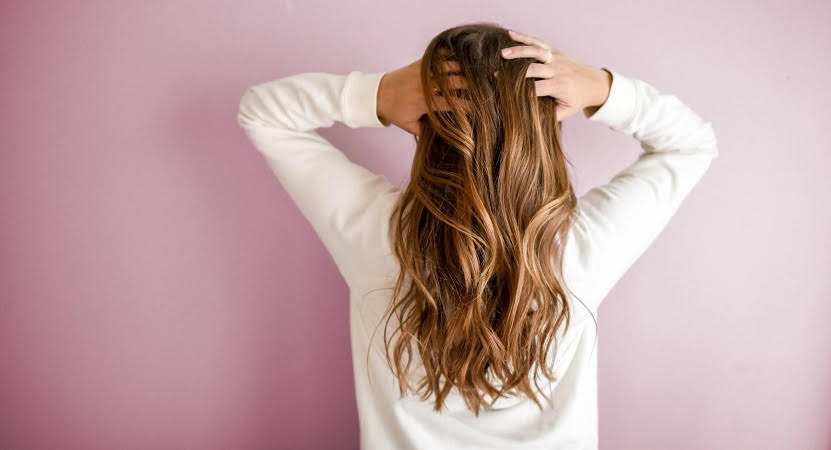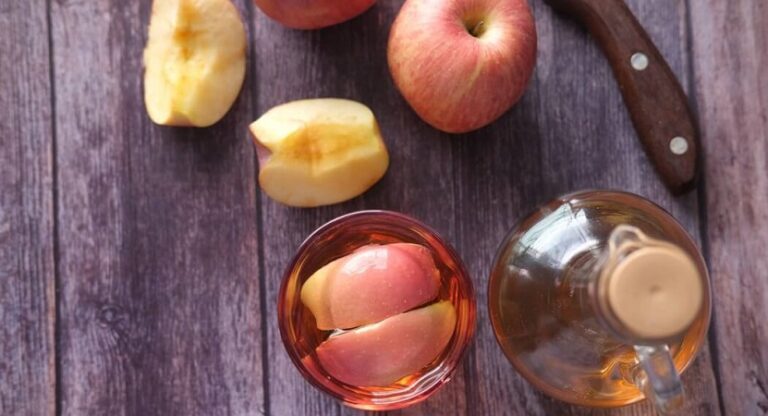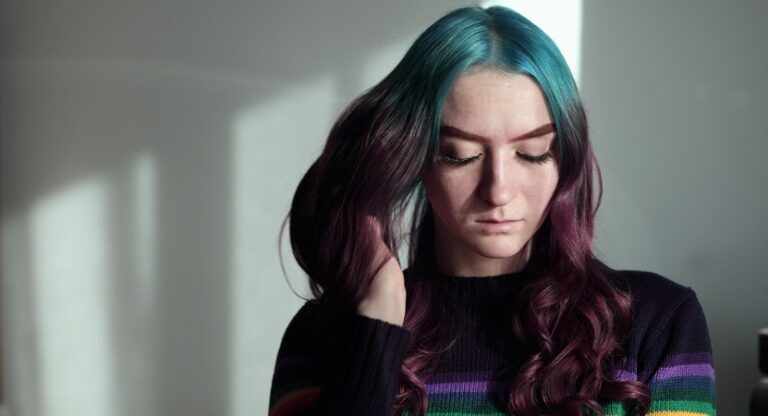Natural dry shampoo is an excellent product for “cleansing” your hair when you don’t have access to a shower or water. Anyone who has ever gone camping with long locks will know the extent of frustration and discomfort that comes with being unable to properly wash one’s hair. Dry shampoo emerged as a way of catering to this need, and remains a much loved product even to those who aren’t camping on the regular. It’s high time we become informed of some natural alternatives.
In this article we discuss the following:
- What is Natural Dry Shampoo
- Organic vs Vegan: All You Need to Know
- Toxins to Avoid in Shampoo
- Why Should I Use Natural Dry Shampoo?
- Top 11 Natural Dry Shampoos
- Lulu Organics Lavender & Clary Sage Hair Powder
- Hair Dance Volumizing Dry Shampoo
- Acure Dry Shampoo
- Fat and the Moon Lavender Cocoa Dry Shampoo
- Captain Blankenship Mermaid Dry Shampoo
- Kaia Naturals Overnight Dry Shampoo
- Briogeo Charcoal & Biotin Dry Shampoo
- Love Hair Volumizing Dry Shampoo
- Handmade Heroes Dry Shampoo
- La Tierra Sagrada Dry Shampoo
- Aveda Shampure Dry Shampoo
- DIY: Make Natural Dry Shampoo at Home
What is Natural Dry Shampoo
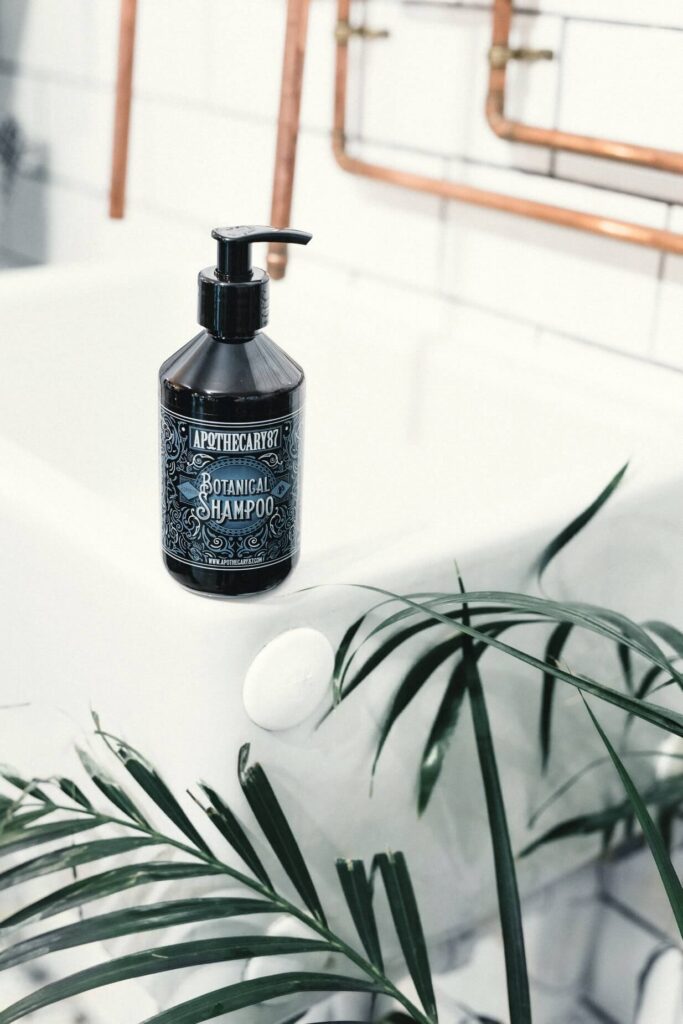
Dry shampoo may have emerged as a solution to the problem of inaccessibility to washing facilities, but its benefits have actually overshone its original intent. You see, as consumers we actually know very little about proper practice when it comes to a hair washing regimen.
Too frequent washing of hair can lead to more harm than good. It strips the hair of its natural oils, in turn forcing the hair to rapidly produce excess replacement oils which often leads to irritation and even damage.
It’s rarely the shampoo that does the harm. The trouble is in the frequent exposure of the hair to hot shower water, and the hot blow dryers and heavy detangling brushes that follow. Hair becomes weaker and more brittle in the process.
By using a dry shampoo, one is able to extend the amount of time between washing, giving the hair a break from heat exposure and stripping of oils. Up until recently, most dry shampoos were manufactured in aerosol spray cans with contents made from synthetic and harmful chemicals.
Natural dry shampoo is now a widespread phenomenon, eliminating the number of aerosols being used by consumers.
Natural dry shampoo takes the goal of cleaning hair without washing it and fulfills it through carefully combined natural ingredients. Aerosols are a thing of the past, and dry shampoo is no longer just a mix of toxins tricking your hair into thinking it is clean.
The market is getting wonderfully saturated by these less harmful alternatives. Instead of spray cans, natural dry shampoo comes in different forms ranging from liquid elixirs all the way to hair ‘dust’.
Organic vs Vegan: All You Need to Know
Under the natural dry shampoo umbrella come the subdivisions that are organic and vegan. All natural beauty products have the opportunity to be either organic, vegan, or neither; it simply depends on the personal ethics of the brand in question.
When it comes to natural beauty products, most of the ingredients used in the formulas will be of botanical descent. Making products whereby most of the formula is plant-derived doesn’t automatically quantify said product as organic or cruelty free.
In order for a dry shampoo to qualify as organic, the formula would need to contain organically grown ingredients only. From the seeds in the ground to the pesticides used throughout their growth, the plants mush have the organic and chemical free seal of approval so that the consequential product can proudly proclaim itself as organic.
Organic dry shampoo would be preferential when looking to buy a natural alternative. While chemicals used in the plant growing process may only show up as trace amounts in a final product, they are not worth the risk. The less exposure you give your body and hair to chemicals — the better!
You’ll be able to tell if your natural dry shampoo is organic by simply reading the bottle. An organic certification logo is seen as something to be proud of and won’t be hard to spot on the product label.
Next we have the big ‘V’. Vegan beauty products are preferred by individuals who make a point of living a cruelty free lifestyle as extensively as possible; from where they shop, to what they eat, to how they advocate, everything is centered around sustainability and bettering life for all.
You may be thinking, surely all botanical based natural beauty products are automatically vegan? Unfortunately not. Since natural beauty products try not to make use of chemicals as binding agents, there are certain “natural” alternatives that get used instead. Beeswax is an example of an animal byproduct used in many natural products, and it requires exploitation of bee colonies in order to harvest it.
Those who value a vegan beauty regime will opt for products with the vegan certification logo on the packaging. They want to use products that have no trace of animal byproducts as ingredients at all. Thankfully, most natural dry shampoos are unintentionally vegan simply due to the fact that their formulas don’t call for heavy binding agents.
Toxins to Avoid in Shampoo
The bottom line is this: all dry shampoos, whether natural or chemical, don’t actually clean the hair that they are applied to. They simply give the illusion of a clean scalp by balancing out any excessive oily build up in days pending the next wash.
Since dry shampoo is not a replacement for hair washing, you can only imagine how many harmful ingredients have been cultivated to achieve that clean hair look and feel.
We encourage everyone to start reading up on the ingredients contained in each product on your beauty shelf. As consumers, it is imperative that we move from passive into active and start becoming informed about what every ingredient’s role is, and the risks associated with said ingredient.
In dry shampoos, these are your biggest threats:
Phenoxyethanol
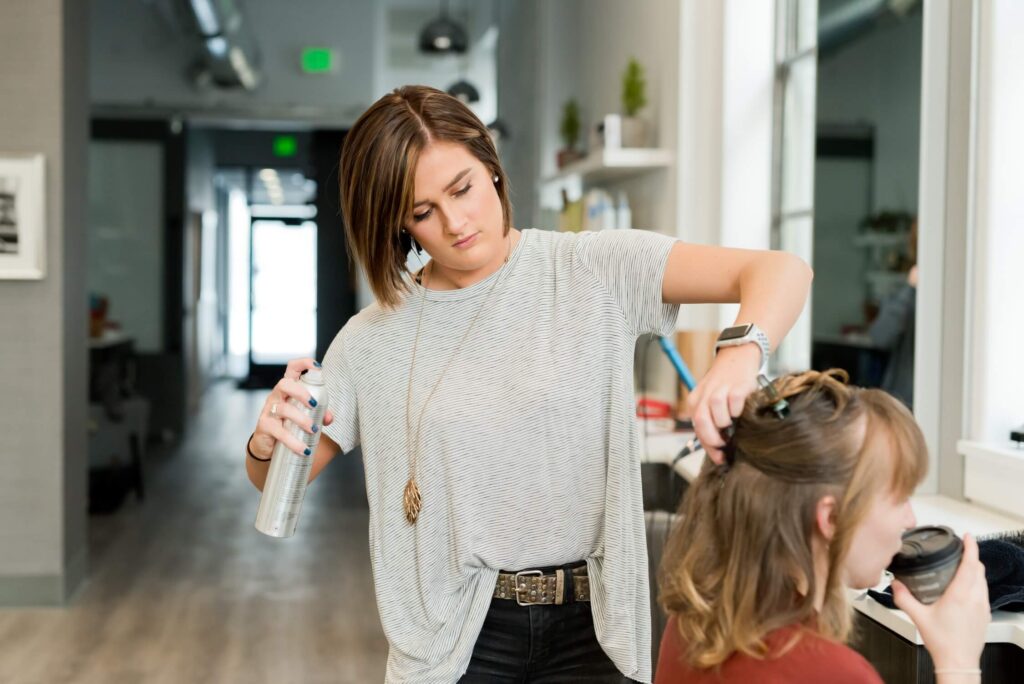
Phenoxyethanol is found in most big name brands of dry shampoo. When found in nature, phenoxyethanol occurs naturally in green tea. However manufacturers like to cut corners, and opted to produce synthetic phenoxyethanol instead of going to the trouble of harvesting it from the tea leaves.
Studies are underway to prove phenoxyethanol’s link to reproductive issues and certain types of cancer. The EU and Japan have, in the interim, limited brands to using just 1% of phenoxyethanol in their shampoo formulas, but we really should be fighting for 0%.
Talc
Talc is a substance that is used in a lot of commercial beauty products and makeup. In dry shampoo, it acts as the key absorption agent; a must for any successful dry shampoo!
Talc seems harmless, as it is made of a compound of magnesium, silicon, and oxygen — all relatively sound, natural ingredients. Unfortunately, asbestos can also be added, and this is where the danger lies.
Asbestos is new to the global health movement. For years it has been reported as a key player in various levels of respiratory toxicity as well as certain cancers. Talc is therefore rarely worth the risk.
Cetrimonium Chloride
Another toxic chemical that had to be regulated to 1% in the EU, cetrimonium chloride is the stuff that reverses static hair.
Dry shampoos remove so much oil from the scalp that each hair follicle actually becomes light and easily electrified. Static hair is a common side effect when using dry shampoo, so cetrimonium chloride is added to counter this from happening.
In classification, cetrimonium chloride is highly allergenic and irritating to human skin. It is also lethal if accidentally ingested. Cetrimonium chloride is an unnecessary chemical to apply directly onto your skin and hair.
Liquid Petroleum Gas (LPG)
The damage that aerosol cans have caused to the ozone layer is still a fresh wound for anyone who lived through the peak of it.
What is it that sends dry shampoo colliding into your scalp at full force simply by pressing the top of the can? Liquid petroleum gas is responsible for spray cans’ ability to hurdle products at sensational speeds, getting the dry shampoo onto the problem area without the user having to get their own hands dirty.
LPG’s don’t dissolve once they reach their destination zone. They release into the air, creating a cloud of gas around your head for you to breathe in whether you consent or not.
Repeated exposure to LPG’s can lead to the development of migraines and chronic nausea. They can trigger symptoms of asthma, as well as other respiratory ailments. It’s not only the user of the dry shampoo that is at risk of these symptoms; if you share your space with children, elderly individuals, or a partner, they too will be breathing in these chemicals unknowingly.
Silicones
Silicones and siloxanes are another big no-no within the natural beauty world. These are agents that force formulas to dry faster, making them seem more efficient and valuable in the consumer eye.
Silicone is one of few chemicals that can hold itself together and not ‘break apart’ after each individual application. Some countries are diving deeper into the risks and diseases associated with repeated exposure to silicone.
Alcohol
Alcohol is an ingredient found in almost all beauty, skin and makeup products on the global market.
Alcohol is known for its ability to dry out even the oiliest of surfaces. When applied to the skin, hair or nails, alcohol burns away natural oils and blocks off the pores from excreting any more.
Prolonged use of alcohol on the skin means that your pores could become clogged for good, and aesthetic skin ailments will begin to emerge. One is also prone to visible skin irritation and even burning as a result of repetitive application of alcohol-based solvents.
Why Should I Use Natural Dry Shampoo?
The skin is our most direct link to the bloodstream without breaking through the surface. What you put onto your skin will eventually end up inside of your skin, and finally inside of your system at large.
The skin of the scalp is extremely thin; there is little flesh separating the skull from the outside world. Any products that are applied to scalp skin are easily absorbed and spread through the rest of the body.
Switching to a natural dry shampoo means less exposure to all of the aforementioned toxins and chemicals. Your body will cease to absorb such harmful ingredients, but you’ll still get your desired result of oil-free hair.
All natural dry shampoo is not only beneficial to you personally but it benefits everyone else, too! Firstly, reducing your carbon footprint by eliminating the use of aerosol cans is something effortless to do but massive in impact.
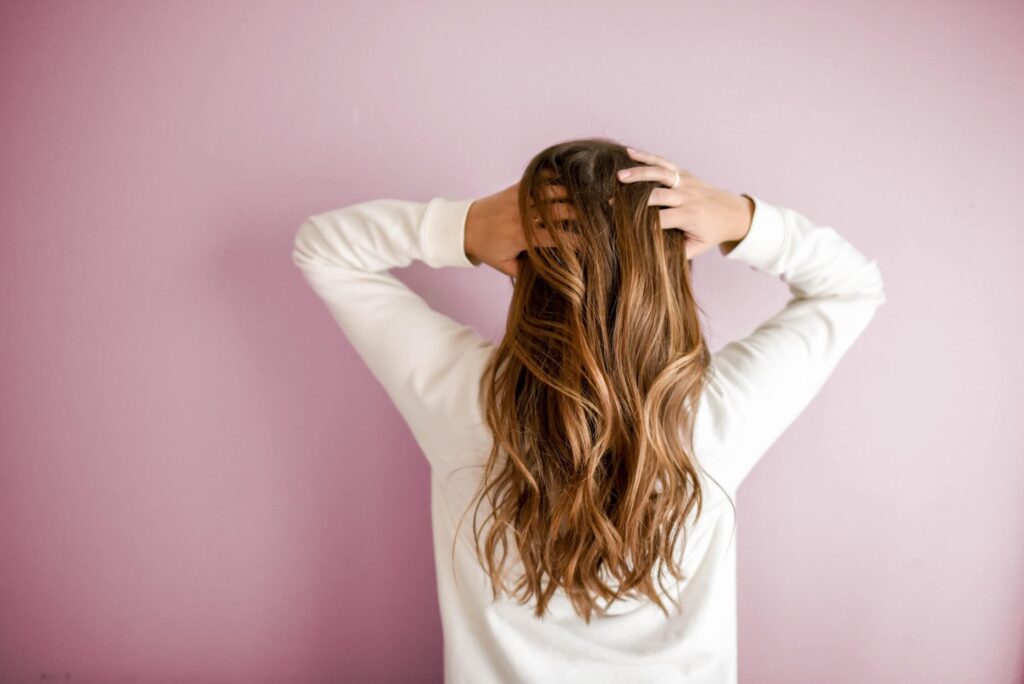
Natural dry shampoos and other natural beauty products often require manufacturing processes that are nowhere near as harmful to the environment as the processes used by big brands. Major beauty brands tend to care about profits and quantity over quality and sustainability. Supporting a small-name, local, natural dry shampoo manufacturer is a way to take a stand against harmful manufacturing manifestos.
The less we are all exposed to aerosol cans, the better. It affects not only the health of children, but of the elderly and the planet as well. We simply don’t need to be contributing to this kind of unconscious destruction in 2020!
Finally, as physically focused human beings it seems we’ve collectively forgotten the presence of energy and how it affects our daily lives. Each of us is made up of an energy force that is invisible to the eye, but felt nonetheless.
Native Americans maintain that our hair is sacred and holds life-force energy that contributes to who we are as an individual. They use natural, plant-based techniques to take care of their lush, long locks, and there is a lot we can learn from them that will lead to increased fulfillment and satisfaction in other areas of life.
Top 11 Natural Dry Shampoos
1. Lulu Organics Lavender & Clary Sage Hair Powder
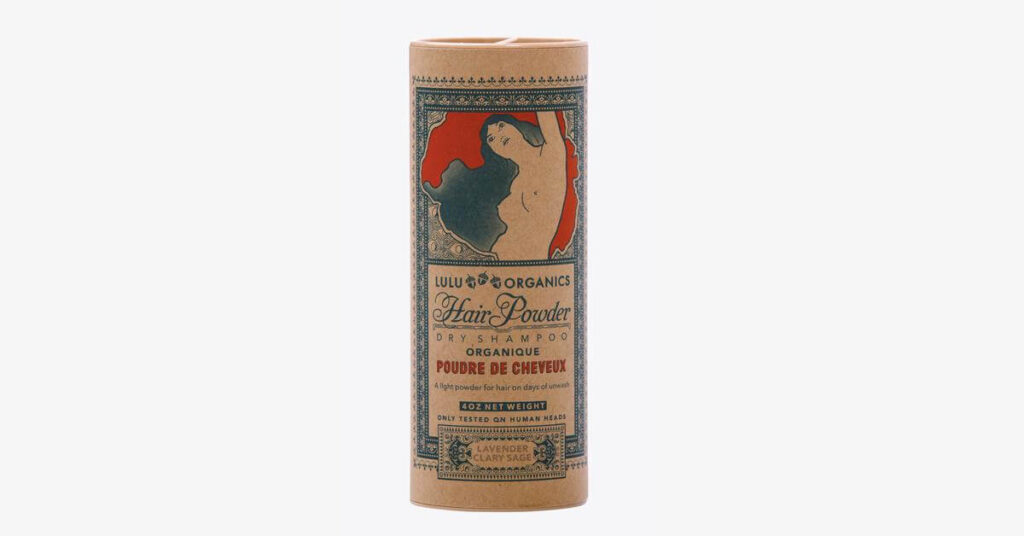
Organic, cruelty free goodness; Lulu’s Hair Powder is our best natural dry shampoo.
The packaging itself is made from recycled paper, so you won’t be contributing to the plastic waste problem when it comes time to disposing of this product. Inside, there are 500 rounds of natural dry shampoo, all brought together in the form of a sweet smelling hair powder.
Aerosol is not even an option with this brand; this is one of the least harmful dry shampoos to the planet. The lavender and sage notes trickle through and give your hair that refreshed look and feel.
2. Hair Dance Volumizing Dry Shampoo
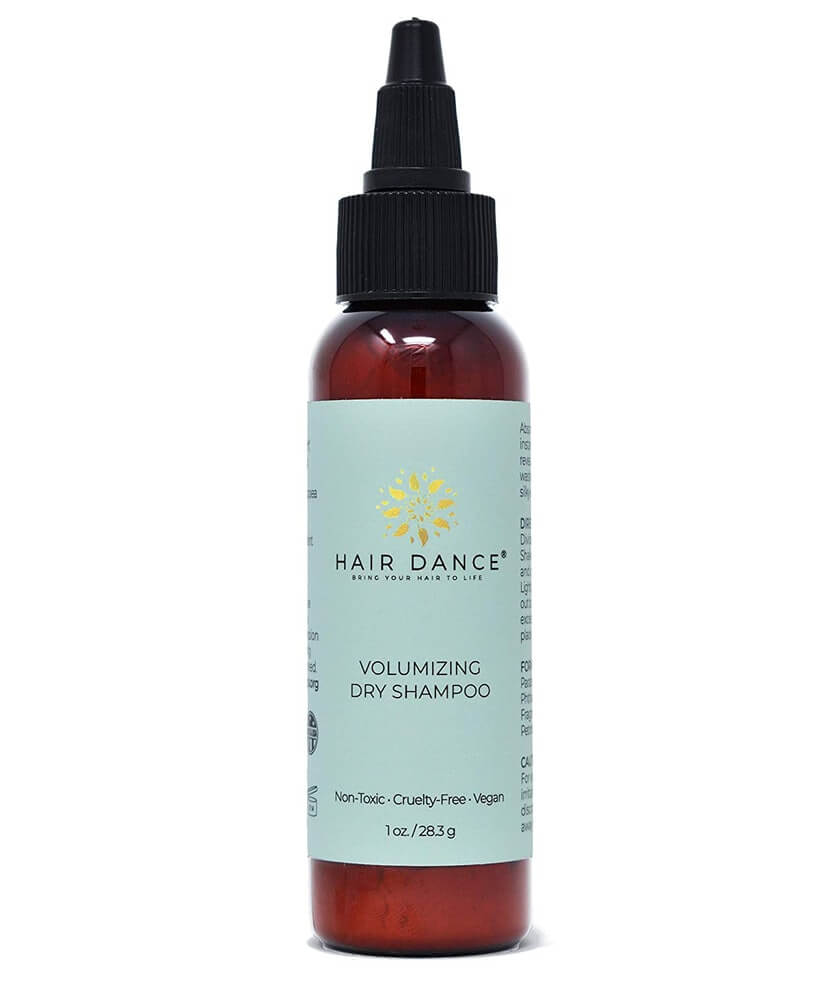
Another GMO free, certified vegan dry shampoo is this wonder by Hair Dance.
The key ingredients for oil absorption are rice starch and oatmeal. Lavender oil comes in to mask the scent of dirty hair, and a very considerate dose of olive leaf even works to promote hair growth from the root.
The bottle makes use of a pointed nozzle that gets up close and personal with the skin on your scalp. Apply it like an elixir.
3. Acure Dry Shampoo
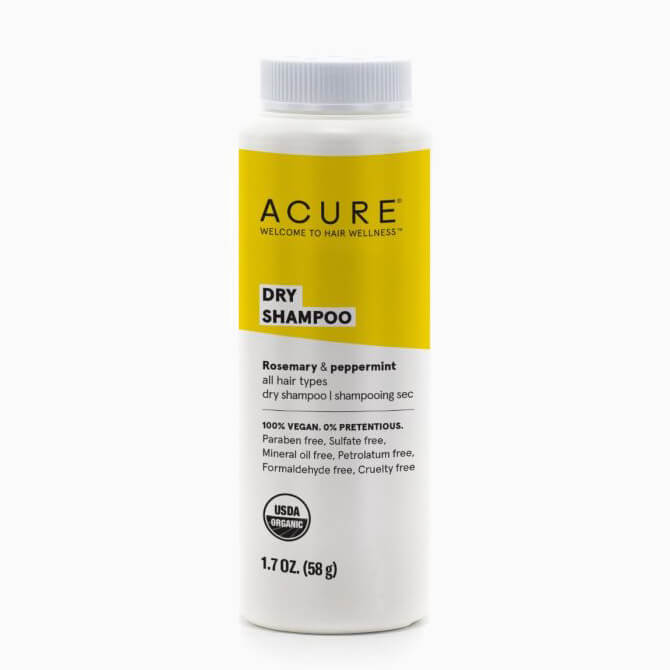
Acure makes one of the best non-aerosol dry shampoo out there. It’s a superior name amongst natural beauty product lovers; all of their products are certified vegan and USDA organic.
Instead of the usual lavender, Acure makes use of rosemary and peppermint. It’s an easy to use formula that simply requires you to run a comb or brush through your hair upon application.
4. Fat and the Moon Lavender Cocoa Dry Shampoo
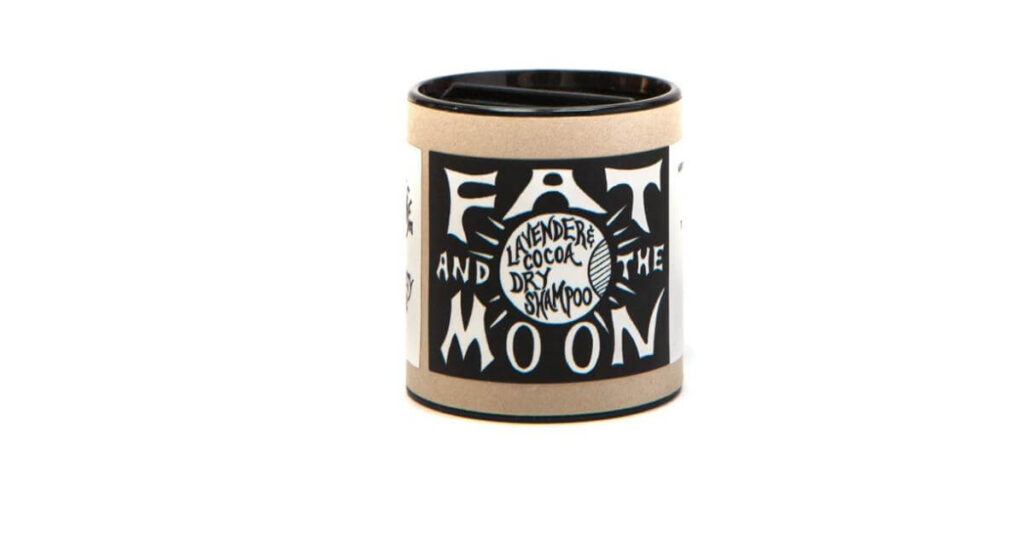
There are only four simple ingredients in the formula that is Fat and the Moon: cocoa powder, arrowroot powder, kaolin clay, and lavender essential oil.
All four components are certified organic, but unfortunately the package itself is made from black plastic (one of the most difficult plastics to recycle). We deduct points because of this, but the powerful oil absorption qualities of the clay do make it one of the best organic dry shampoos available.
Also due to the the cocoa powder, this natural dry shampoo is better suited to darker tresses.
5. Captain Blankenship Mermaid Dry Shampoo
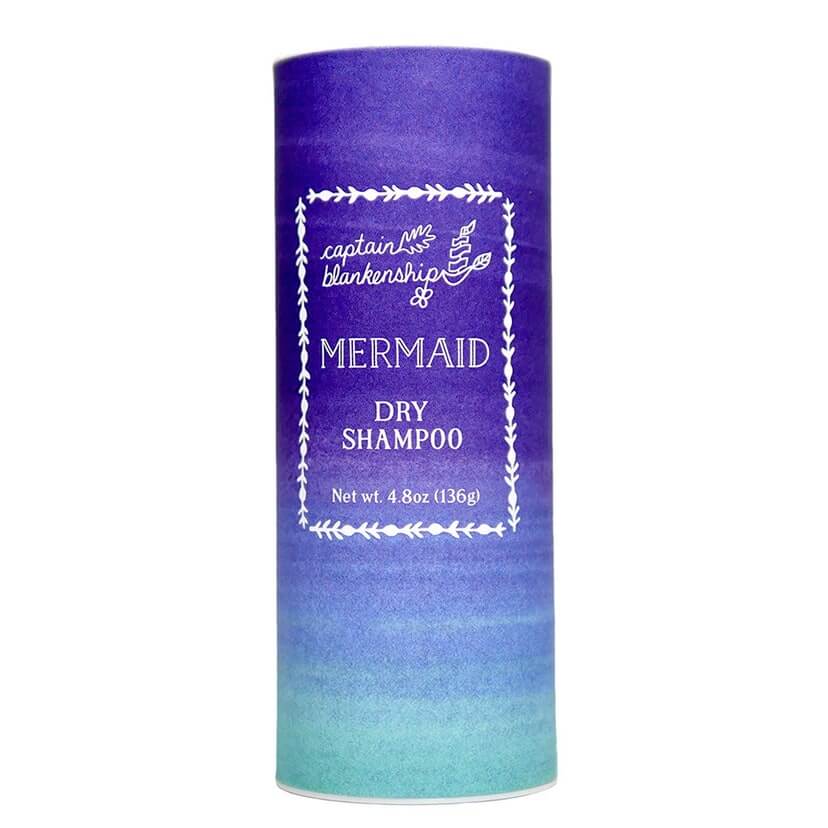
This rose oil scented formula is a wonderful powder for hair. It’s made from arrowroot powder, baking soda, and kaolin clay that work to absorb all oil at the root and slow the natural process of making more oil.
A downside to hair powders is that they are almost always miniature in portion size. Captain Blankenship is blessing us with a generous portion of powder for a very reasonable price.
6. Kaia Naturals Overnight Dry Shampoo
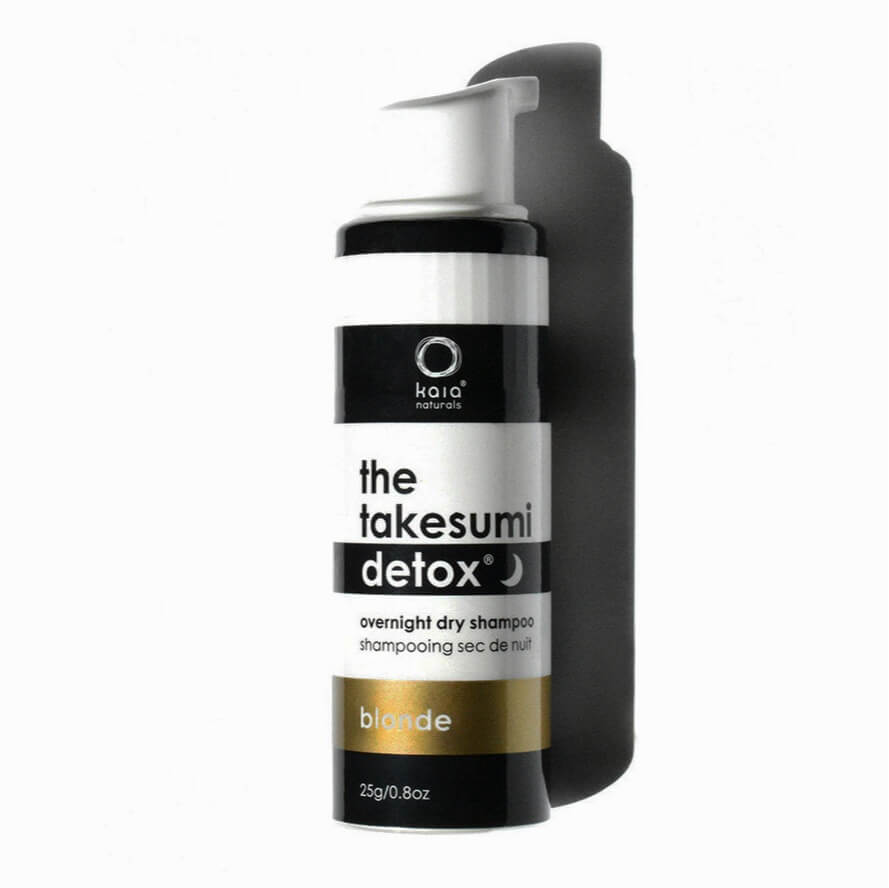
One of the best ways to treat excess hair oil is to do so as you slumber. This gives the natural shampoo time to work its magic, without the pressure of rapid results as so many of us expect when we spray our heads 10 minutes before an outing.
Kaia has given consumers a choice of two dry shampoo shades: one for blondes and one for brunettes. Natural ingredients sometimes have colorants that come through, so one can’t always use the same formula on different colored hair. For example, cocoa powder is a commonly used ingredient suitable for darker haired people.
Activated charcoal is the key ingredient within the Kaia dry shampoo. Left in overnight, scalp oil will stay at arm’s length for the duration of the next day.
7. Briogeo Charcoal & Biotin Dry Shampoo
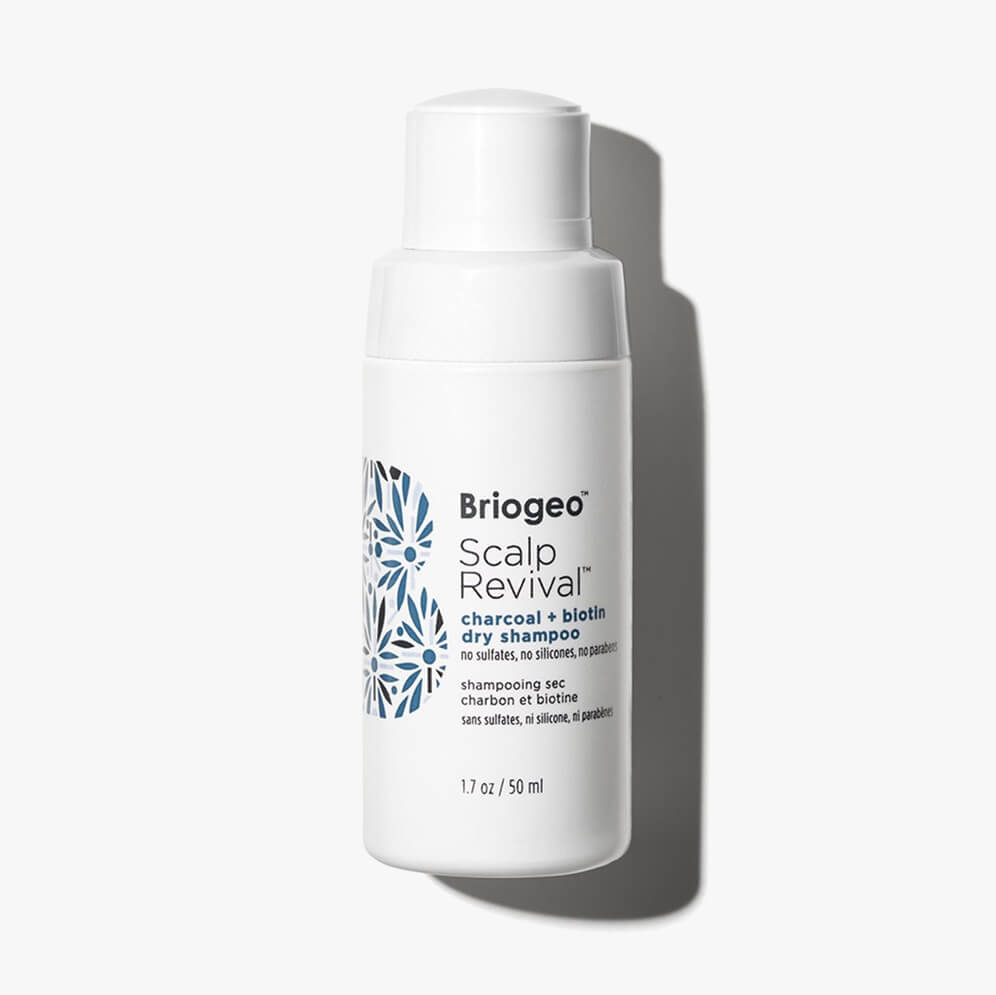
At Briogeo, they believe in one dry shampoo for all hair types; a different take than we are typically used to!
This product is suitable for all hair, particular hair that is color treated or relaxed. Tapioca is the star of the show, pulling oils out and absorbing for personal gain. Witch hazel acts as the anti-inflammatory and anti-irritation agent and a hearty dose of Biotin promotes overall better hair health.
It’s difficult to find a dry shampoo that is natural in both prevention and promotion; Briogeo has stolen our hearts.
8. Love Hair Volumizing Dry Shampoo
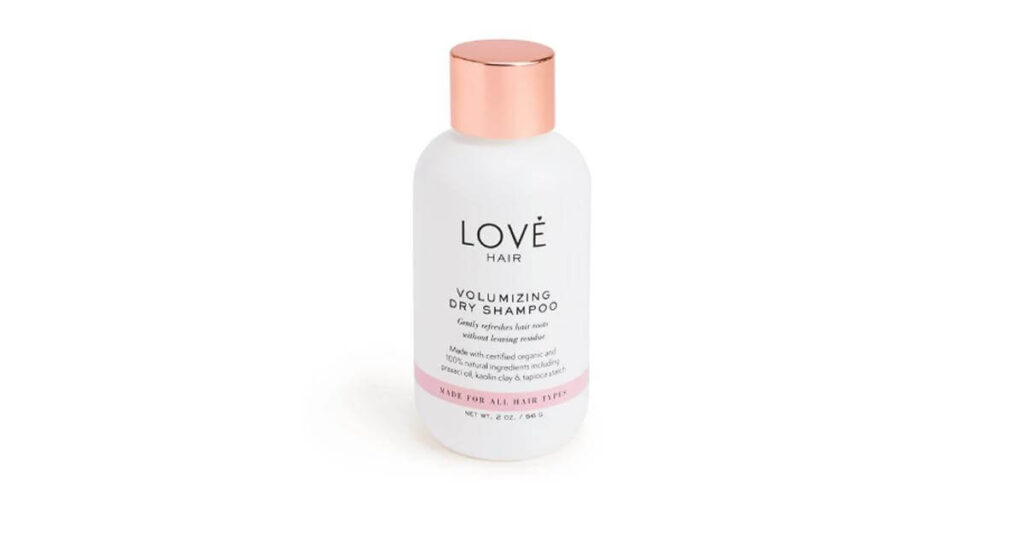
Mimi Ikonn is a blogger who promotes natural lifestyles and worldwide travel. Love Hair is her brainchild, offering a vegan, cruelty free solution to excess oil in unwashed hair.
Corn, tapioca and aloe vera are a few key ingredients. Despite its seemingly plastic facade, Love Hair’s dry shampoo bottle is 100% eco-friendly and recyclable. The packaging used for shipment is also completely sustainable and harmless to the environment.
Definitely a brand to support if cruelty free and sustainability are concerns.
9. Handmade Heroes Dry Shampoo
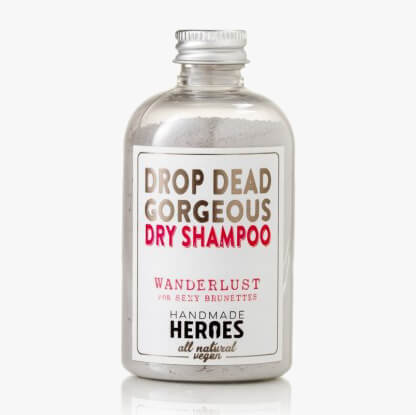
Sometimes sensitive scalps battle to accept even the most natural of product formulas. Handmade Heroes noted this gap in the market and have made a unique concoction of dry shampoo that works for even the most sensitive of individuals.
The ingredients that work without irritation are lavender, charcoal, and peppermint. Somehow the shampoo leaves hair more full of life than after an actual wash!
10. La Tierra Sagrada Dry Shampoo
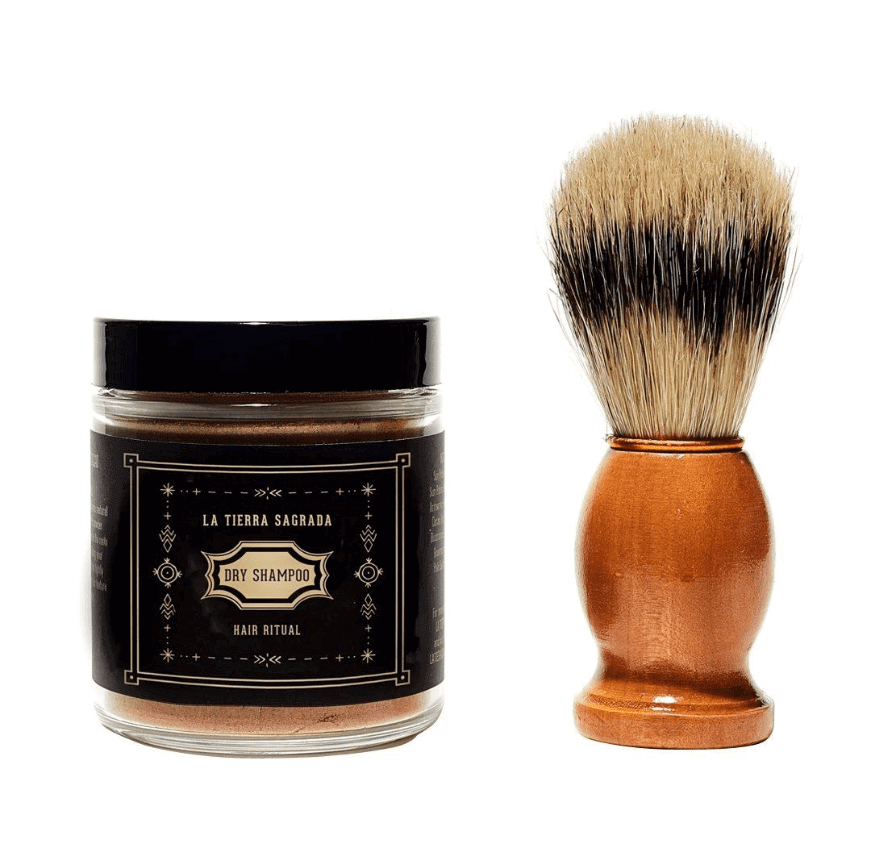
This natural dry shampoo is on the pricier side. It’s a high end alternative to toxic shampoo and comes with a snazzy applicator brush to gently apply to formula to the roots of your hair.
Arrowroot powder and baking soda work together as an oil-absorption dream team. The brand is also concerned with hair loss, and has included a powerful Ayurvedic adaptogen to help combat that.
11. Aveda Shampure Dry Shampoo
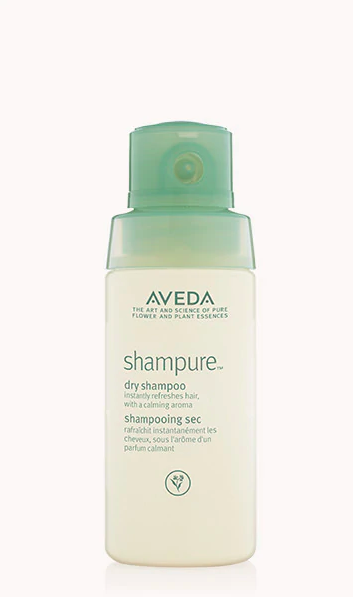
This dry shampoo revives hair with naturally derived powders that absorb excess oil and impurities. It has an innovative applicator nozzle that will remind you of aerosol dry shampoo but without the harmful aerosol! According to Vincent De Marco, co-owner of the Los Angeles-based Vincent Hair Artistry, this is the best carbon neutral, non-aerosol talc free product on the market. De Marco says “I use it all of the time and couldn’t live without it.”
DIY: Make Natural Dry Shampoo at Home
One of the best things about switching to natural beauty and self-care products is that you can always resort to making them in your own home.
Chemicals can be hard to get your hands on but natural botanicals are abundant resources available to all who know where to look. Making homemade products is as easy as simply knowing which plants work best.
These are some great DIY natural dry shampoo recipes for you to try at home. You’ll need access to empty jars and an electric mixer.
DIY Dry Shampoo for All Hair Colors
Ingredients:
- 2 tbsp ground cinnamon or cocoa powder
- 2 tbsp cornstarch or arrowroot powder
- 6 drops of any essential oil
Preparation and Use:
- Use a small bowl to mix all ingredients together. Apply directly to the roots as needed.
DIY Dry Shampoo with Baking Soda (via No Waste Nutrition)
Ingredients:
- ¼ cup baking soda
- ¼ cup cornstarch
- Optional: 1 tbsp cocoa powder for brown hair
- Optional: 1 tbsp activated charcoal for black hair
- Optional: 1 tbsp cinnamon for red hair
Preparation and Use:
- Mix together the baking soda and cornstarch in a small container.
- Depending on your hair color, you can choose to add 1 tablespoon of cocoa powder, 1 tablespoon of activated charcoal, or 1 tablespoon cinnamon. Or leave it as is!
- Store in a small container and use a make-up brush to apply the dry shampoo.
DIY Dry Shampoo for Dark Hair
Ingredients:
- 1/4 cup organic cornstarch
- 2 tbsp arrowroot powder
- 2 tbsp cocoa powder
- 5 drops lavender oil
Preparation and Use:
- In a small jar, combine the cornstarch, arrowroot and cocoa.
- Add the essential oils and mix well.
- Use an old makeup brush to apply the mix to the roots as needed.
DIY Dry Shampoo in Powder Form for Dark Hair
Ingredients:
- 2 tbsp heaped cinnamon
- 2 tbsp heaped cocoa powder
Preparation and Use:
- Put the ingredients into a small jar, seal the lid and shake vigorously until properly mixed.
- Use your fingers to push the powder through your roots.
Did You Enjoy This Article?
If you enjoyed this article, you might also like our articles discussing beauty and hair care such as Black Seed Oil for Hair, Chebe Powder for Hair Growth, Emu Oil for Skin, Hair and Health, and Top 10 Ingredients to Avoid in Hair Products.

